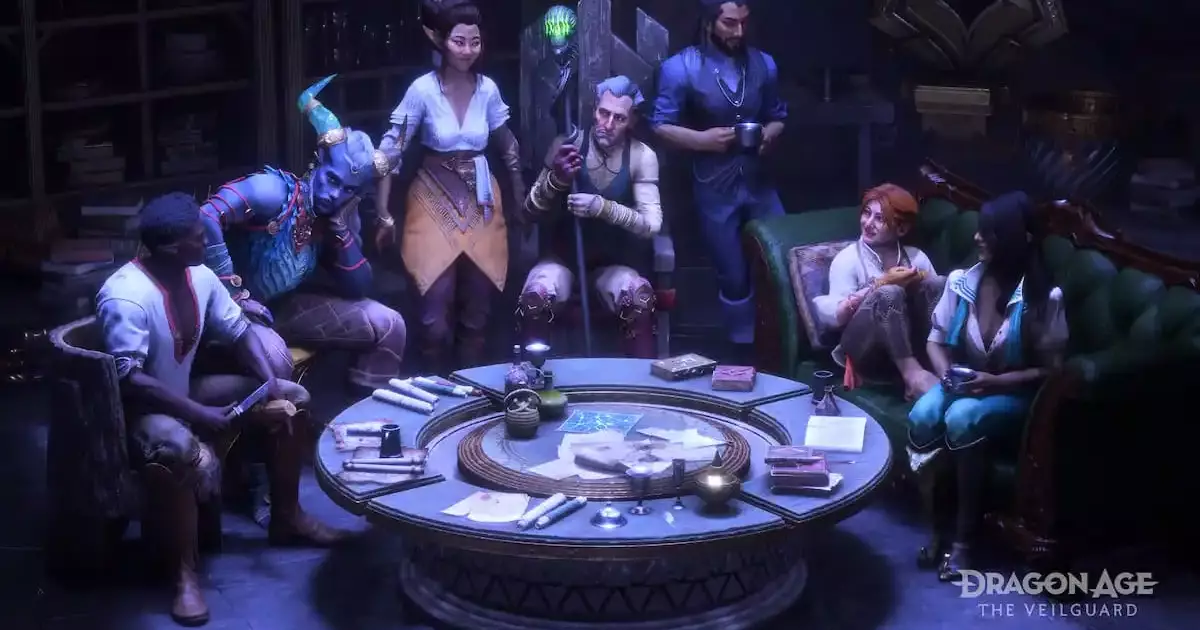The fantasy universe of Dragon Age invites players into a rich tapestry of stories, characters, and conflicting histories. Unlike many RPGs that adhere strictly to a cohesive and unambiguous lore, Dragon Age revels in its inconsistencies, creating a world that is as layered as it is enigmatic. The fascinating interplay of varied perspectives among the races—humans, elves, and qunari—serves not only to enrich the narrative but also to heighten the tension that drives the series forward. This article aims to examine these elements of ambiguity and their role in shaping the experience of players within the realm of Thedas.
In Thedas, the truth is rarely singular. Every faction holds its own interpretation of events, history, and beliefs. For example, the human perspective often reflects superiority and entitlement, while the elves carry the weight of a lost heritage, and qunari express a theology different from the other races. This multiplicity of views creates an engaging atmosphere where players are prompted to consider the motivations driving each faction. The divergence not only establishes the foundation for conflicts but also invites players to engage in moral ambiguities, as decisions made can affect alliances and outcomes in unforeseen ways.
Former lead writer David Gaider emphasizes that the world of Dragon Age thrives on this uncertainty. In a conversation with Eurogamer’s Robert Purchese, he remarked on the necessity of doubt as part of the story. The humans might tell one account of the origins of magic or the Fade, while the elves might spin their own version, full of omittance and bias. The explicit distortion of history, especially the further it reaches into the past, ensures that players must actively seek out the narrative amidst the noise of conflicting claims.
Gaider’s approach to storytelling involves purposeful obfuscation: the more ancient the tale, the more obscured and biased the accounts become. This design choice enables a richer exploration of themes such as subjectivity, belief, and truth—each intertwined within the lore of Thedas. By crafting a world where “the absolute truth is rarely knowable,” players are drawn into a state of inquiry, constantly questioning what they perceive and what they are told.
Such an intricately woven narrative tapestry does not come without its challenges. One might wonder how future installments could potentially delve deeper into the lore without unraveling the very fabric that holds its intrigue. Dragon Age: The Veilguard, for instance, promises to introduce ancient elven gods who may possess firsthand knowledge of Thedas’s origins. This narrative twist could provide clarity but also risks ending the ambiguity that has defined the series thus far. Gaider himself expressed skepticism about the implications of revealing core truths. Would answering these fundamental questions diminish the charm of uncertainty that makes Dragon Age’s lore captivating?
The allure of fan theories and unanswered mysteries has defined many RPG experiences, providing an opportunity for ongoing discussion and speculation. The “Chekhov’s Gun” concept, popularized in storytelling discussions, becomes pertinent here. It suggests that every element introduced in a narrative must eventually come into play, leading to the pressure for the writers to deliver a resolution. But what happens when that resolution threatens to flatten the depth inherent in a world characterized by competing narratives?
Gaider’s reflections illustrate the thin line writers walk: to either encapsulate their grand narrative in tempting clarity or to maintain an atmosphere of pleasing uncertainty. The decision becomes particularly critical as new content like Dragon Age: The Veilguard releases. Will this installment respect the complex nature of the existing lore while offering thrilling new insights?
Ultimately, the strength of Dragon Age lies in its capacity to provoke thought and introspection. Players immerse themselves in a world where truth is fluid and shaped by individual interpretation. The varying beliefs among the factions invite us to see not just the external conflict, but the internal struggles that define identity and belief systems.
While there will always be those who crave a comprehensive codex that answers every question, the beauty of a game like Dragon Age is rooted in its ability to allow players the freedom to construct their understanding of Thedas. Each interaction, each decision, adds layers to the intricate narrative and gives life to the delicate dance between fact and fiction, ultimately transforming the player’s journey into a deeply personal odyssey through a multifaceted world. As Dragon Age: The Veilguard enters the spotlight, it remains to be seen whether it shall expand the lore or, like its predecessors, continue to explore the beauty of ambiguity.

